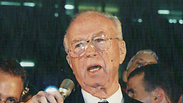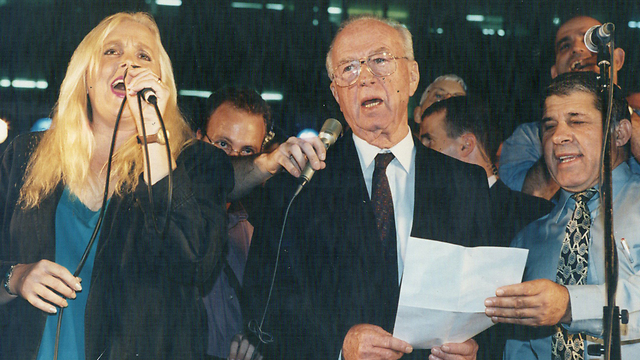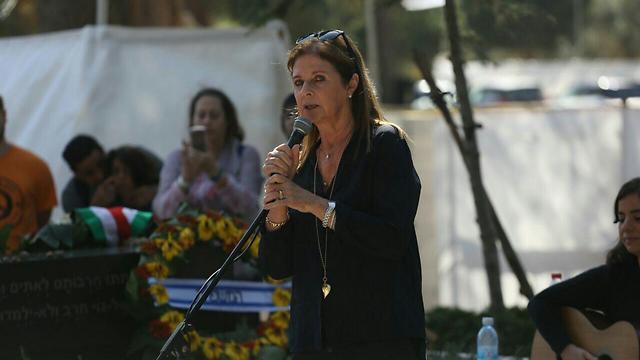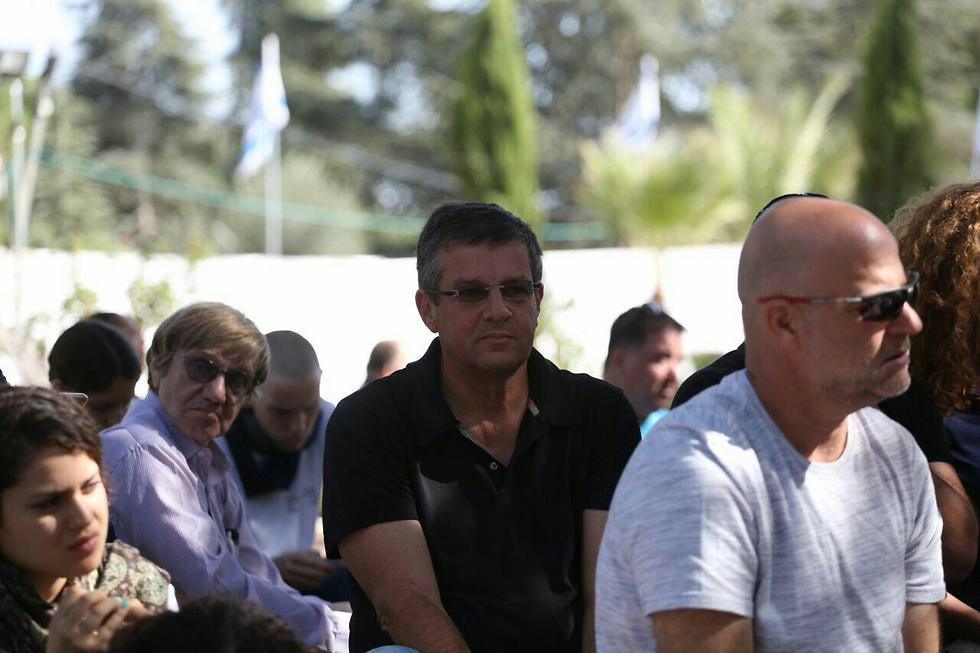

Rabin remembered 21 years after assassination
Former PM, Nobel Peace Prize laureate and architect of Israel’s blitz victory in the Six Day War, Yitzhak Rabin’s family and friends gather at his burial site in Jerusalem to remember his most notable accomplishments and his personal attributes; Rabin's daughter: 'some people still think it was perhaps a good thing that he was killed.'
Rabin’s daughter, Dalia Rabin praised her father but also expressed her concerns that the incitement that gripped Israel prior to her father's murder has not yet dwindled.
“I am starting to think that the incitement is not yet over. This was a murder and a death about which there is still no consensus to this day. There are still whole segments of this nation that barricade themselves behind all kinds of apparatus allowing them to say that perhaps it was a good thing that they killed him and obviously they repudiate his way, curse and mock us, the family.”
Dalia said that these circumstances make it more difficult to cope on a daily basis with the mourning and the loss. “The murder was terrible and it is an open wound for us, the family, but I think that it is also an open wound for many in the hearts of many in our nation,” she told those in attendance.
She also highlighted that Former President Shimon Peres chose to be buried next to Rabin’s and his wife Leah Rabin’s grave which she said was reflective of an unbreakable partnership between the two symbols of Israel.
“Shimon Peres’s choice to be buried here next to mom and dad is significant. There was a partnership despite all the differences and different practices. These two people were leaders of the Labor movement in their own different ways. Here, together, they symbolize a way that is denied but has not been replaced by any alternative.”
Former director of the Mossad Shabtai Shavit (1989-1996) also spoke at the memorial, recalling discussions he had with Rabin—who led Israel’s lightning victory as IDF chief of staff in the 1967 Six Day War—and described his profound insights and understandings of multiple subjects.
“You knew that for better or worse, there was someone to back you up—in success or in failure. When you are someone who acts, you don’t know if it will succeed or not,” Shavit said.
He pointed to one of Rabin’s greatest legacies, praising his ability to forge a peace deal with Jordan despite the bitter wars that had occurred between the two countries since Israel’s inception.
“The contribution (to that deal) of others was perhaps 20 percent. Negotiation teams put together an agenda that included hundreds of clauses with the idea of reducing difference and to first solve simpler matters,” he continued. “Looking back, none of the teams could reach an agreement regarding any of the core issues, and each of them needed to consult with Yitzhak and King Hussein.
“Yitzhak was always there to deal with everyone on the core issues in real time. If necessary, he would pick up the phone to the King Hussein or go to a meeting. The issues were dealt with at that level. That just goes to show the critical part in this peace that belongs entirely to Yitzchak.”


















